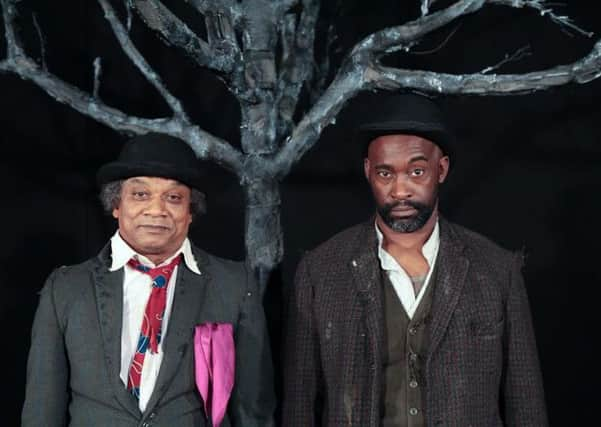Nick Ahad: Love '˜em or hate '˜em everyone needs a critic


Nobody ever built a statue to a critic, so the saying goes.
We have a rough old time of it, us critics.
When he was looking for an insult to end all insults in Waiting for Godot, Samuel Beckett alighted on the word. Estragon and Vladimir, the two patient tramps, are trading filthy words. Vladimir opens with ‘moron’. Estragon parries with ‘vermin’. Back and forth they trade blows until Estragon hits on the mot juste, the very worst thing he can call his friend. “Critic!” He shouts and the argument comes to a close, nowhere lower to go.
Ouch.
I’ve noticed recently there has been a bit of negative commentary about critics on social media, continuing Beckett’s tradition (side note: wouldn’t you love to see Beckett’s Tweets?). Typical comments include... I’ll just call them typical and leave it at that.
Advertisement
Hide AdAdvertisement
Hide AdI’m not going to explain my own qualifications for the job of The Yorkshire Post’s chief theatre critic, I’m a little bored of explaining to people how I can be a critic, radio presenter and playwright (we’re none of us one single thing). What I will explain is why we do it.
If you think theatre critics do their job for the money, you’re dead wrong. If you think theatre critics do their job for some sort of prestige, you’re wrong. If you think theatre critics do their job for some feeling of power (a direct accusation I have seen bandied about social media) – again, I’m afraid you’re wrong.
I recently received my latest card from the Critics’ Circle, an invitation-only organisation that has existed since 1913. The Critics’ Circle was an offshoot of the Institute of Journalists on Fleet Street and it ‘views criticism as an arm of free speech and an essential ingredient of a healthy society’.
Here’s why I’m a critic.
I love theatre. It’s an art form that has given me more than I can really say, not least of which is an access into a world where I get to be a theatre critic. I wear my working class credentials proudly for the simple reason that theatre, which I encountered as a child, opened up a world to me that would have simply been out of reach, I imagine.
Advertisement
Hide AdAdvertisement
Hide AdCritics are a vital part of a conversation. I want theatre to be good – actually, no, I want it to be great. If it’s not, I’m going to say so. Ironically it seems those who believe in theatre being egalitarian and democratic have the most to say about the pointlessness of critics.
We add to the conversation. We bring a frame of reference to the discussion. Good critics bring a wider view to the picture.